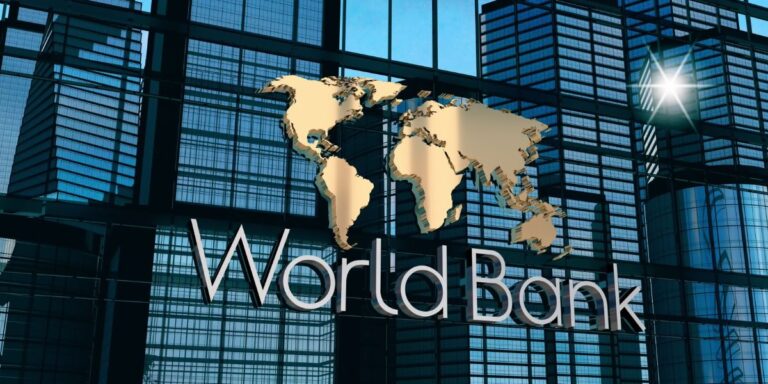Despite mounting global trade tensions and one of the weakest worldwide economic outlooks in nearly two decades, the World Bank has maintained a positive growth forecast for Nigeria, projecting a 3.6% GDP increase in 2025.
In its latest global economic outlook released Tuesday, the Washington-based institution highlighted Nigeria’s services sector—notably finance, telecommunications, and ICT—as the primary engine behind this growth trajectory.
“Growth in Nigeria is forecast to strengthen to 3.6 percent in 2025 and to an average of 3.8 percent in 2026–27,” the report stated.
Services Drive Growth While Oil Falters
Africa’s largest economy saw its fastest growth in a decade last year, thanks to momentum in financial services, telecom, and transportation, as well as a mild rebound in oil output. However, the industrial sector remains constrained, with the oil industry showing signs of fatigue following a temporary resurgence.
While global GDP is projected to fall to 2.3%, Nigeria appears comparatively insulated due to its domestic economic reforms and a shift towards non-oil sectors.
Reforms Bolster Resilience
The World Bank attributed Nigeria’s stability to bold structural reforms including:
-
Floating of the naira, enhancing foreign exchange transparency.
-
Fuel subsidy removal, improving fiscal sustainability.
-
Stronger state-level revenues and increased remittances from government-owned enterprises.
“Domestic reforms have helped spur investment, supporting growth in the services sector, especially in financial services and information and communication technology,” the report noted.
Inflation: A Work in Progress
Despite inflation still hovering above the Central Bank of Nigeria’s (CBN) target, recent trends show a moderating pace, supported by aggressive rate hikes throughout the previous year. The CBN raised interest rates six times in 2024, and continues to keep a hawkish stance to ensure price stability and protect the naira’s value.
“Inflation is expected to decline gradually this year,” the World Bank said.
Global Headwinds vs Local Gains
Although Nigeria faces external pressures—such as trade disruptions triggered by global tariff wars and volatile oil prices—its internal economic reengineering has positioned it more favorably to manage these shocks.
As the global economy continues to waver, Nigeria’s commitment to reform and economic diversification may well be the foundation of its resilience.

